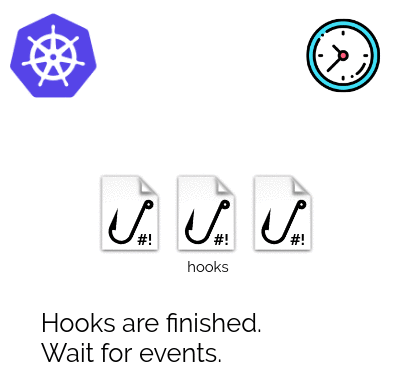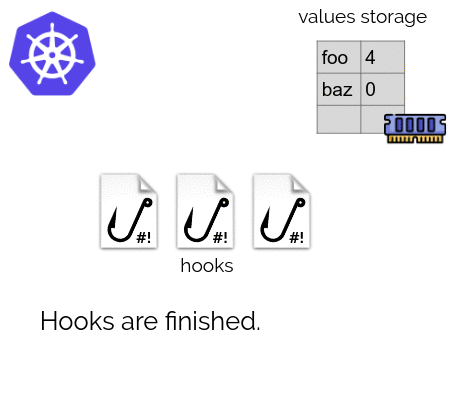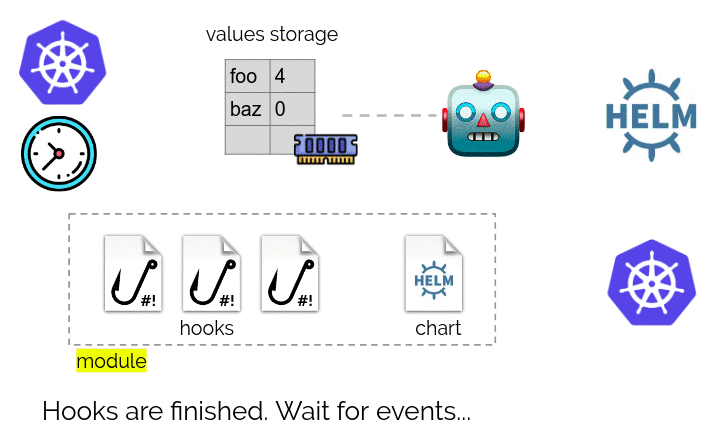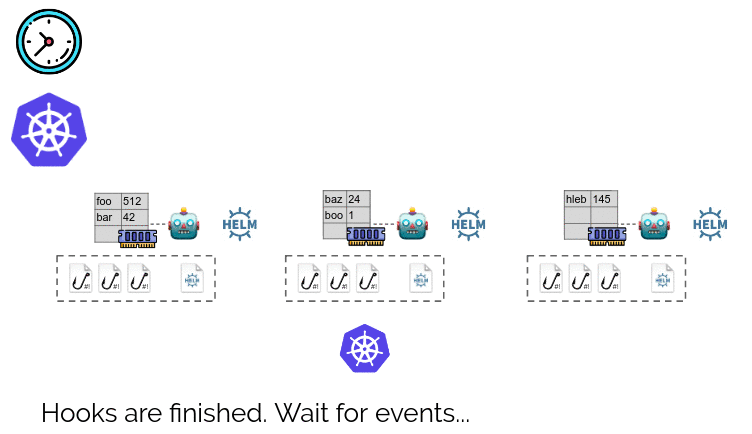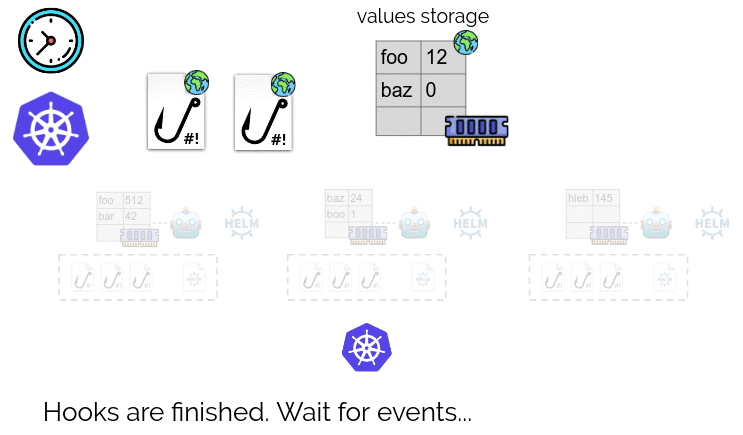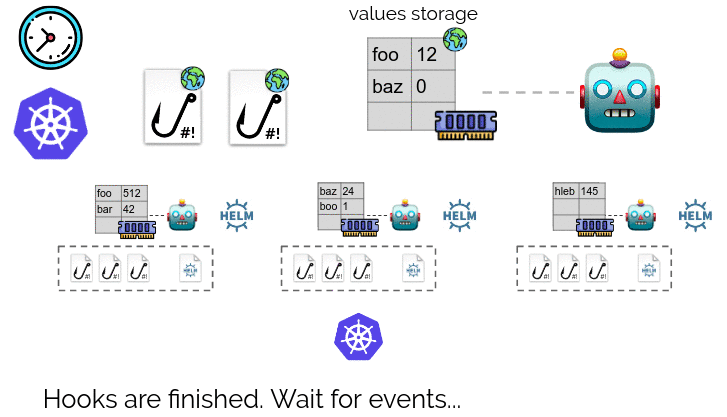Addon-operator combines Helm charts with hooks and values storage to transform charts into smart modules that configure themselves and respond to changes in the cluster.
Contents
- Discovery of values for Helm charts — parameters can be generated, calculated or retrieved from the cluster;
- Continuous discovery — parameters can be changed in response to cluster events;
- Controlled Helm execution — addon-operator monitors the Helm operation to ensure the Helm chart’s successful installation. Coming soon: use kubedog to track deploy status and more;
- Custom extra actions before and after running Helm as well as any other events via the hooks paradigm. See related shell-operator capabilities.
Additionally, addon-operator provides:
- ease of maintenance of Kubernetes clusters: use the tools that Ops are familiar with to build your modules and hooks such as Bash, kubectl, Python, etc;
- the execution queue of modules and hooks that ensures the launch sequence and repeated execution in case of an error, which simplifies programming of modules and ensures predictable outcome of their operation;
- the possibility of dynamic enabling/disabling of a module (depending on detected parameters);
- the ability to tie conditions of module activation to the activation of other modules;
- the unified ConfigMap for the configuration of all settings;
- the ability to run Helm only if parameters have changed. In this case,
helm historywould output only releases with changes; - global hooks for figuring out parameters and performing actions that affect several dependent modules;
- off-the-shelf metrics for monitoring via Prometheus.
Hooks are triggered by Kubernetes events and in response to other stimuli.
A hook is an executable file that can make changes to Kubernetes and set values of Helm (they are stored in the memory of addon-operator) during execution.
Hooks are a part of the module. Also, there is a Helm chart in the module. If the hook makes changes to values, then addon-operator would upgrade the release of the Helm chart.
There can be many modules.
In addition to modules, addon-operator supports global hooks and global values. They have a storage of values. Global hooks are triggered by events and when active they can:
- Make changes to Kubernetes cluster;
- Make changes to global values storage.
If the global hook changes values in the global storage, then addon-operator triggers an upgrade of releases of all Helm charts.
You may use a prepared image flant/addon-operator to install addon-operator in a cluster. The image comprises a binary addon-operator file as well as several required tools: helm, tiller, kubectl, jq, bash.
The installation incorporates the image building process with files of modules and hooks, applying the necessary RBAC rights and deploying the image in the cluster.
To experiment with modules, hooks, and values we've prepared some examples.
- Find out more on lifecycle of addon-operator and how to use modules, hooks and values.
- See METRICS on how to monitor addon-operator.
- Explore shell-operator documentation, especially hooks section.
- Discover how to tune deploy settings.
Please feel free to reach developers/maintainers and users via GitHub Discussions for any questions regarding addon-operator.
You're also welcome to follow @flant_com to stay informed about all our Open Source initiatives.
Apache License 2.0, see LICENSE.




